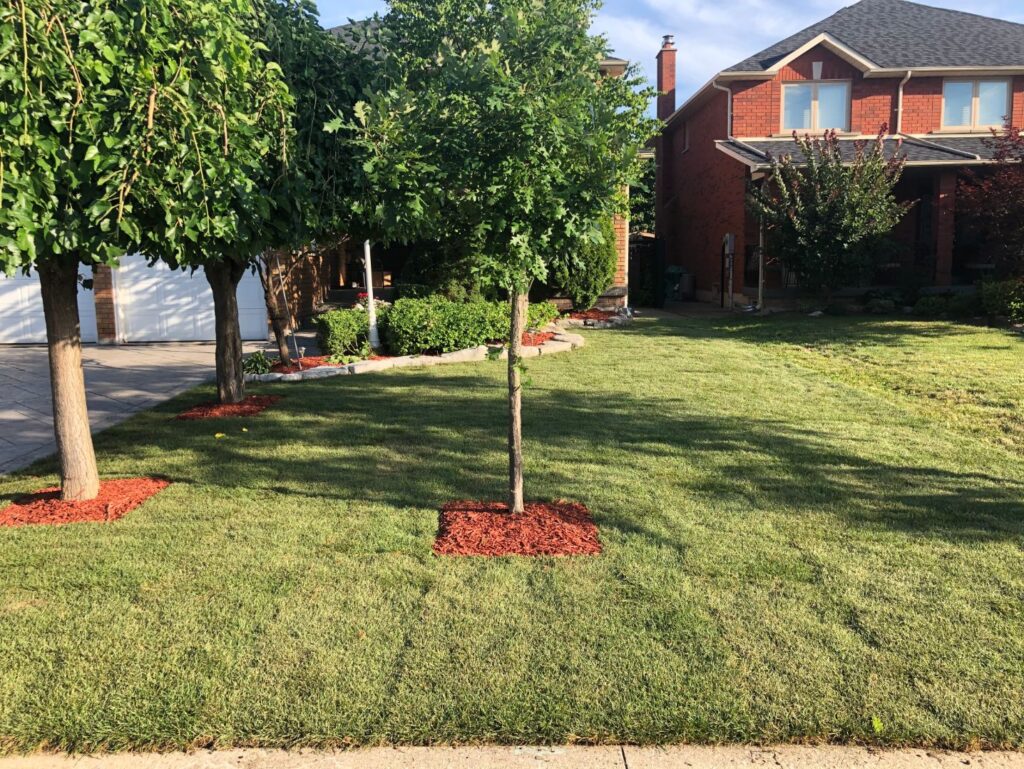Key Takeaways
- Homemade weed killer is typically made from the combination of 3 ingredients: something that will actively damage the weeds, a surfactant, and water
- Different active ingredients you can use are vinegar, salt, or rubbing alcohol
- Boiling water can also be an effective weed killer
- Natural alternatives include mulch, ground cover, and corn gluten meal
Getting rid of weeds in your lawn or garden can be a frustrating undertaking, especially for those who want a more natural weed killer for lawns. In this article, we will discuss simple recipes for DIY weed killer, how different ingredients work, and some other alternatives to help you deal with weed growth.

Simple Homemade Weed Killer Recipes
The basis of any homemade weed killer is typically the combination of 3 ingredients. These are active ingredients that will damage the weeds like vinegar or rubbing alcohol, water, and a surfactant like liquid dish soap which will reduce surface tension and allow the solution to spread further along the weed.
The following is a variety of simple recipes for weed killers that you can make at home:
How DIY Weed Killer Ingredients Work
Active ingredients in DIY weed killer are contact herbicides, which means that they only kill what they touch, so their effectiveness is based in large part on coverage. Let’s take a closer look at some of the ingredients used in the above recipes:
Vinegar
Vinegar contains acetic acid which causes the plants it’s sprayed on to wilt and die, turning yellow and then brown beforehand. A good thing about the acetic acid in vinegar is that it breaks down easily, so it won’t cause any permanent damage to your soil. However, to prevent damage to surrounding plants and keep the soil healthy, vinegar weed killer should only be used once every two weeks. Something to keep in mind, though, is that vinegar with over 11% acetic acid can damage metal and burn your skin, so avoid using a sprayer with metal features and make sure to wear gloves, long sleeves, long pants, and closed-toe shoes to stay safe.
Salt
Salt has the ability to take water from plants, killing weeds by drying them out. If a salt solution is sprayed directly into the soil, the roots will absorb it, killing the entire weed. Unfortunately, salt can also permanently damage the soil if used in this way, making it so that no plants can grow. It’s important to be careful and ensure that you are not using too much. Salt is best used on young weeds in walkways and driveways in order to limit the damage done to surrounding plants.
Rubbing Alcohol
At a concentration of 5%, rubbing alcohol will slow down weed growth and at a concentration of more than 50%, it will dissolve the waxy layer of leaves and stems, causing weeds to lose water.
Large amounts of rubbing alcohol within soil can damage it so that plants won’t be able to grow until the alcohol dissipates. It’s important to use this type of solution sparingly to prevent this from happening.
Alternatives to Suppress Weed Growth
You may want to consider a more natural weed killer for lawns. If this is the case, consider the following alternatives to help suppress weed growth:

Mulch
Adding a fresh, 2 to 3 inch layer of mulch on top of soil before weeds start to grow is an extremely effective way to kill weeds. This is because mulch stops sunlight from reaching the soil, which keeps weeds from being able to develop.

Ground Cover
Planting different perennials of various heights to provide ground cover will leave less space and nutrients for weeds, preventing them from growing.

Corn Gluten Meal
Corn gluten meal is a pre-emergent herbicide, meaning that it only works at the early stages of weed growth when sprouting begins, but before roots form, because it stops roots from growing. If roots have already formed, then it is essentially useless.
The meal should be scattered over the soil and watered to become active.
Final Thoughts
Throughout this article, we have discussed various recipes for making strong homemade weed killer, explained how different ingredients work, and outlined natural alternatives to prevent weed growth. At Sodding GTA, we are committed to providing you with exceptional sodding services and helping you with lawn care. Contact us today!
Contact Sodding GTA today for more sodding tips or professional installation!
FAQs
A vinegar solution is the strongest homemade weed killer.
A vinegar solution typically takes 24 hours to kill weeds, but should start working immediately, blackening the weeds within a few hours after spraying.
While most homemade solutions are contact herbicides and won’t kill weeds at the root, salt is the one ingredient that can kill at the root. However, it also severely damages the soil and should therefore be used sparingly.
